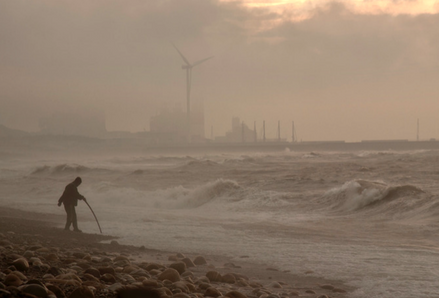This article is part of our monthly travel and global health news round-up.
Here at IAMAT, our main focus is on travel health and not specifically on safety when abroad (there are many organizations and government departments that provide useful travel safety information). However, the two often overlap, and nowhere is this more evident than during extreme weather at popular travel destinations. Flooding, hurricanes, heat waves, and other weather events can have sudden and dramatic impacts on the health and safety of travellers and local people.
Hurricanes and flooding
Hurricanes Harvey, Irma, and Maria battered the Caribbean and the southern United States in September. Some locations suffered minimal damage and were ready to host travellers again within a week or two. Others will be rebuilding for months and receiving far fewer visitors as a result. Several news outlets published island-by-island updates for popular destinations and cruise ports.
While it hasn’t captured headlines in quite the same way, recent flooding during the monsoon in Nepal, Bangladesh, India has destroyed buildings, displaced people from their homes and resulted in thousands of illnesses, injuries, and deaths. The water remaining from flooding is a breeding ground for the Aedes and Anopheles mosquitoes that transmit Dengue and Malaria, respectively. In early September, news agency Reuters reported:
About 13,000 people are ill with diarrhoea and respiratory infections in densely populated Bangladesh after floods in its north, where the Brahmaputra and Jamuna rivers broke their banks.
Infectious diseases can spread after damage from extreme weather due to lack of adequate housing, water, and sanitation. Communities that already had high levels of poverty may take months or years to recover.
In an interview with NPR, Jono Anzalone of the American Red Cross highlighted the location-specific challenges of disaster response in South Asia and the southern United States:
In Bangladesh, India and Nepal every single year, things like bed nets [to keep away mosquitoes that can spread Malaria and Dengue], oral rehydration salts [to prevent diarrheal disease and cholera] can save a person’s life. Those are priority items to distribute when a disaster like this strikes.
In the U.S., it’s uncommon to see the distribution of mosquito nets and rehydration salts. Even though in Texas we do have mosquitoes, we’re very fortunate that the shelters have well-contained vector control [methods to shut out mosquitoes and other disease-carrying animals].
A note about volunteering abroad after extreme weather
For many of us, our first response to an extreme weather event is to help. Making a donation to a humanitarian organization specializing in disaster relief or local development is one way to lend a hand. People with specialized skills, such as medical professionals, may also be requested by the country recovering from the disaster.
(Check first before you make plans to go abroad for disaster relief: There may already be enough expertise available locally and outside help may not be needed.)
If you do not have specialized skills in disaster relief or medicine, it’s best not to travel to the recovering area to volunteer independently. If you would like to volunteer, consider whether your skills could be best used to provide support through a relief organization back home. Don’t book a trip to volunteer without a formal role in an organization experienced in relief work and familiar with the recovering areas.
Matador Network offers a useful checklist for those thinking of going abroad for disaster relief.
Gaps in travel insurance with extreme weather
What if you were on vacation when a storm or flood hit? What if you had a trip scheduled shortly afterward? How would your travel insurance work? In this article, consumer advocate Ellen Roseman outlines a few challenging travel insurance scenarios that you could face after your destination is hit by extreme weather:
- Why credit card insurance may not cover you if your trip was booked by someone who isn’t travelling with you
- What is refundable if your trip was booked on points and cancelled due to extreme weather
- When your travel insurance will cover you if you’re travelling to a hurricane-prone area during hurricane season
Always read your policy from A-Z and understand your coverage before your trip.
Staying informed
Extreme weather can’t always be predicted, but you can be prepared by being aware of seasonal weather patterns at your destination. For example, hurricanes in the Caribbean typically occur around the same time each year.
- If you’re planning a trip, start by checking our climate charts for the average monthly temperature, precipitation, and humidity at your destination.
- If you’re registered with your government’s traveller enrollment program (such as STEP for US travellers or Registration of Canadians Abroad), you may also receive alerts about severe weather.
More about international volunteering
Ethical international volunteering checklist – IAMAT
More harm than good? The questionable ethics of medical volunteering and international student placements – Irmgard Bauer in Tropical Diseases, Travel Medicine and Vaccines 2017 3:5
Photo by Witch Kiki, Unsplash.
Article by Daphne Hendsbee.



